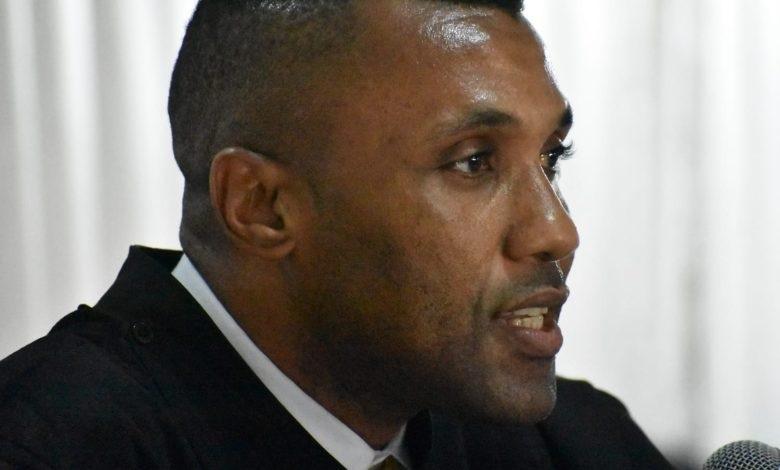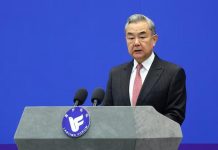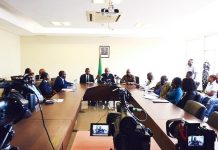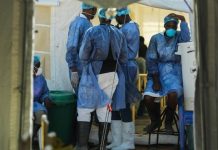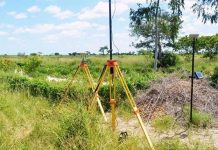Africa-Press – Mozambique. At the “hidden debts” trial before the Maputo City Court, one of the defence lawyers, Isalcio Mahanjane, tried to reverse the previous day’s ruling by judge Efigenio Baptista that Jean Boustani, a senior official of the Abu Dhabi based Privinvest group, cannot be called as a witness in the current case.
Baptista said he had cancelled the arrangement for Boustani to testify from his home country of Lebanon by video-conference, because Boustani is already an accused person in a second “hidden debts” case in another section of the City Court.
Baptista claimed he had received no official information about this. Because of the Mozambican sub judice rules, he was unaware that the Public Prosecutor’s Office had already charged Boustani with corruption. An accused person cannot be asked to testify in another case about the same facts (in this case, the hidden debts). So Baptista believed he had no alternative but to revoke his original dispatch, authorising Boustani to testify via video-conference.
Mahanjane, who represents several key defendants, including the former head of economic intelligence in the country’s security service (SISE), Antonio do Rosario, and Ndambi Guebuza, oldest son of former President Armando Guebuza, on Friday morning called on Baptista to “correct” his dispatch.
He said there would be nothing illegal about Boustani testifying “but within limits”. He believed that Boustani’s testimony “is important for discovering the material truth”.
Baptista retorted that his Tuesday dispatch could only be “corrected” is there was something wrong with it, if the dispatch contained “material errors” or if it did not express the thinking of the judge.
But in fact the dispatch said exactly what Baptista wanted, and contained no errors. “The real problem is that Isalcio Mahanjane disagrees!”, he exclaimed.
“His argument doesn’t work”, the judge said. ”The correct approach would be to lodge an appeal against the dispatch”.
Boustani himself sent a press release on Thursday from the offices of a Beirut law firm, saying it was “deplorable and unbelievable to hear, on television today, the Mozambican Court
blocking my testimony”.
He insulted Baptista with the gratuitous insult that “this latest manoeuvre is yet further proof that the Mozambican Authorities are manipulating their judicial system for political purposes”.
Boustani also took the opportunity to demand that President Filipe Nyusi testify in the trial, describing him as “the man at the centre of the story”.
This is a straightforward lie: the case concerns illegitimate loans of over two billion US dollars from the banks Credit Suisse and VTB of Russia to three fraudulent, security linked Mozambican companies, Proindicus, Ematum (Mozambican Tuna Company) and MAM (Mozambique Asset Management).
At the time these companies were set up, and obtained illicit loan guarantees from the Mozambican government (2012-2014), Nyusi was not President. The man in charge was his predecessor, Armando Guebuza.
The man who signed the loan guarantees, the then finance minister, Manuel Chang, answered to Guebuza, not to Nyusi.
The attempts to push Nyusi centre stage are a longstanding tactic of Privinvest, which is being sued by the Mozambican state through the London courts.
Another man really at “the centre of the story” is Boustani himself who masterminded a scheme of bribes and kickbacks whereby at least 200 million dollars of the loan money was diverted into the pockets of corrupt Mozambican official, including Chang, and Credit Suisse officials, three of whom have admitted to taking bribes.
Boustani also boasted that it is now the second anniversary of his acquittal in a trial in New York “which included charges based on Mozambican law”. This is another lie.
Boustani was charged under US law, not Mozambican law and he faced charges, not of bribery and corruption, but of conspiracy to commit money laundering, wire fraud and securities fraud. He escaped conviction because Privinvest’s deep pockets paid for clever lawyers who claimed that since the crimes did not take place in the United States, and Boustani had never set foot in the US before, he could not possibly be guilty.
Three of the jurors, including the foreman, speaking on condition of anonymity, told the Bloomberg agency that they did not see how federal prosecutors in Brooklyn had the authority to prosecute crimes that had not occurred in their jurisdiction.
This was despite exhaustive explanations by the prosecution that Boustani did not have to be physically present in the United States to commit financial crimes under US law. It was enough for the conspirators to use elements of the US financial system (such as US corresponding banks).
The New York court had no choice but to release Boustani, since under the US system the prosecution cannot appeal, even against a manifestly perverse verdict.
Boustani agreed that Privinvest had paid bribes – but he preferred to call them “fees”.
As prosecuting attorney Hiral Mehta put it, “You can call them what you want. Success fees. Influence fees”, he said. “They are bribes. You pay government officials in connection with projects that they’re on? A CEO of the project you are working with? Or the guy signing the guarantees? It is bribes. Plain as day”.
Of course, if Boustani really does want to tell his side of the story, he can simply surrender himself to the Mozambican Attorney-General’s Office, and await trial by the Maputo City Court in the second “hidden debts” case.
For More News And Analysis About Mozambique Follow Africa-Press

